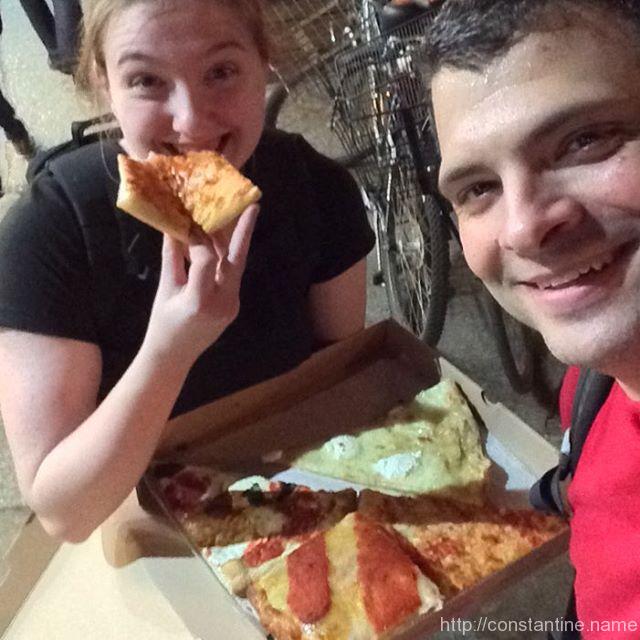Something a little different today: I’ve been considering switching to heating with gas and I recently ran some numbers.
tl;dr: I will be continuing to heat with solid fuel.
Preamble: We have already deeply insulated our attic, upgraded insulation in the walls which were opened during some remodeling, and replaced all windows and doors with modern versions. (Our house was originally built in 1954.) This is the obvious first place to begin improving heating your home.
Electricity: My electricity costs $0.0758 per kWh. I can basically turn on my electric baseboard heaters and this is what I’d pay (per kWh) to heat our house.
Methane: This is the proper way to heat a home in northern climates. Unfortunately, “street gas” is not present in my neighborhood. One block over, yes, here, no. They would install it for me… if I’m willing to pay the entire cost to rip up the street and put in the gas main.
Propane: Chemistry geeks know that propane has about 12% less energy per molecule compared to methane. But generally speaking, appliances (my gas cooking stove, a gas heating appliance I would need to buy/install) can be adjusted to burn either fuel. Anyway. I already have a small propane tank that serves my cooking stove, so I would “just” need a larger tank — possibly MUCH larger, possibly so large that safety ordinances would require me to put it underground. Anyway. My propane costs me $5.999/gal — if you know about petroleum, this is an incomprehensibly high number. Meanwhile, 1 gal propane = 27kWhr of energy. And a gas heater (I’m imagining replacing my wood stove with an appliance that sits in the same space) is effectively 100% efficient at turning that gas into heat. So simple math shows that propane would cost me $0.222/KWh — about THREE times the cost of electricity.
Firewood: This is MUCH harder to compute. First off, I have to estimate how much energy is available in the wood I’m burning; that’s affected by species of wood, and how it’s seasoned and stored (because the MORE water in the wood, the more heat is “lost” to vaporize that water and send it away up the chimney.) Some factors to consider: Where I live, there are several readily available “fuel” species of trees that are sustainably available. I’ve found a reputable supplier who is not hauling it long distances and provides me the right sizes etc for what I want. I also have the absolute best imaginable way of storing the wood in “cribs” that expose it to air drying while having it under cover.
So I’m guessing 20 million BTU per cord. (A cord is a stacked, pile 4 feet tall, with a foot print of 4×8 feet. Technically, it’s a pile of 4-foot LONG logs, 4 feet high and 8 feet wide on the ground. A true wood heating system is a separate unit outside that is meant to take 4 foot long logs. I purchase ~16″ pieces split, which still makes the 4×8 foot print computable. I digress.) Good fuel species can be up to 30MBTU/cord. So I’m being conservative with 20.
20M BTU is 5,861 KWh. I pay $300 per cord (fellow Pennsylvanians just twitched because that is pretty expensive — 225 or 250 is typical — but this is excellent wood species, all cut and split to the correct sizes for stove fuel, delivered early in the season, and dumped exactly where I want it. As usual, I digress. So math happens leading to $0.0512 / KWh. Even if I figure-in that the wood stove is only 80% efficient (we have a great stove made in Scandinavia which really does exceed 80% efficiency when operated correctly), that only bumps the cost up to $0.0639 / KWh.
Update in 2019: My electricity costs $0.07039 per KWh. (That’s down about 1/2 cent.) I’ve a new firewood supplier, with the price down to $225 per cord. That’s $0.038 / KWh, and still only $0.048 / KWh at 80% stove efficiency.
And finally some references…
http://www.propane101.com/propanevselectricity.htm
http://worldforestindustries.com/forest-biofuel/firewood/firewood-btu-ratings/
ɕ


